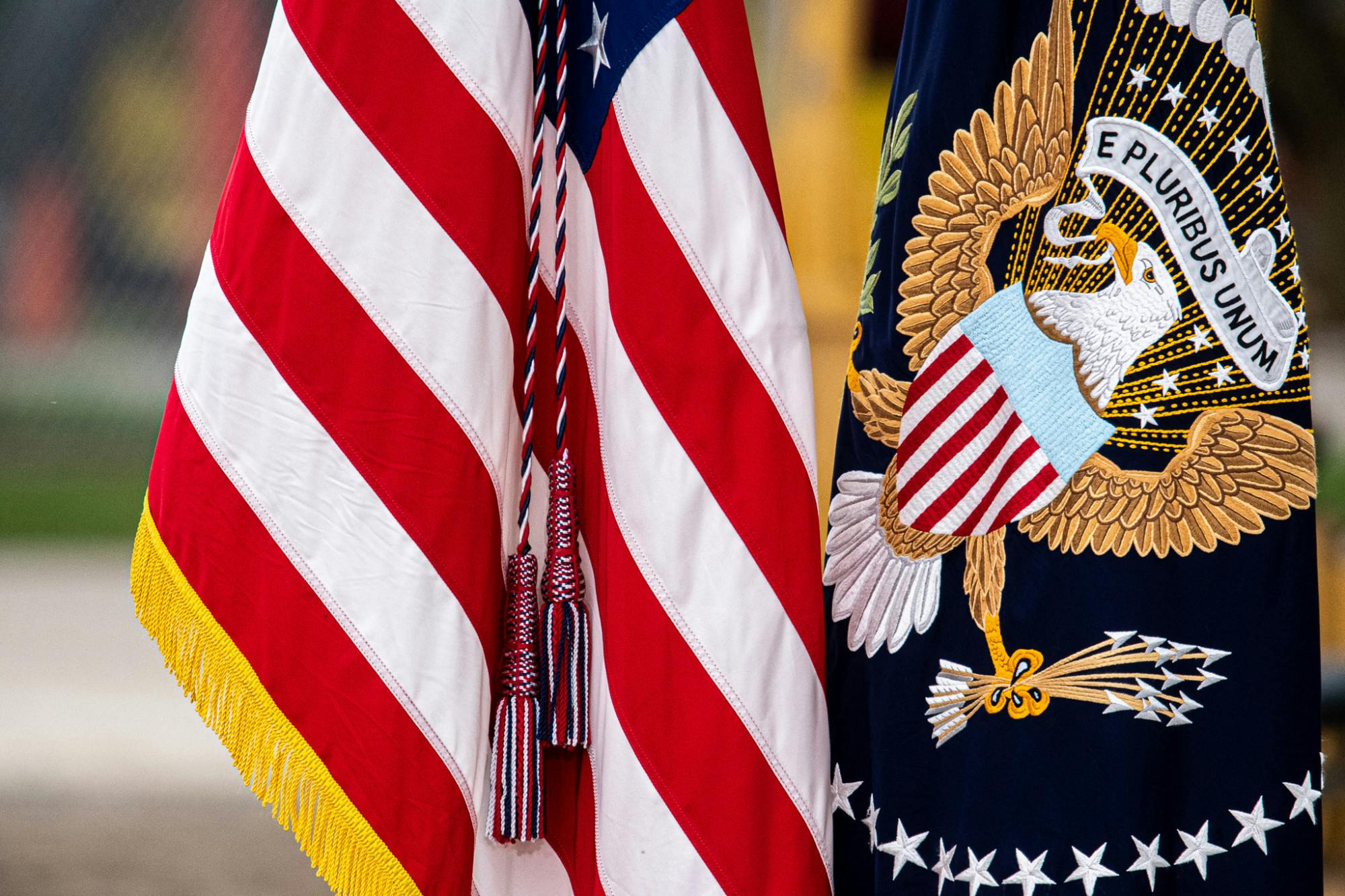I am a casual follower of German politics.
They recently held an election, where they decided who would take over for the position of chancellor after the 16-year incumbent Angela Merkel is choosing to step down from the position at age 67.

Flags stand next to the podium at the Howell Township training facility in Howell, Michigan. Biden spoke on the improvement of infrastructure and his "Build Back Better" plan, on Oct. 5, 2021.
I am a casual follower of German politics.
They recently held an election, where they decided who would take over for the position of chancellor after the 16-year incumbent Angela Merkel is choosing to step down from the position at age 67.
German politics, like any politics, are contentious. Their far-right party, the AfD, was uniformly disavowed by every German I interviewed.
The part about their politics that works, however, is that the chancellor virtually always has the backing of their party.
Sure, maybe it takes a little persuading of a few key votes, but because it is a parliamentary-style system, the chancellor’s party is always the majority of the governing coalition in the Bundestag, the German legislature.
Gridlock is so frequent in Washington D.C., it is logical to say that it is actually the natural order of Congress. Both former Presidents Barack Obama and Donald Trump faced gridlock two years into their terms.
This style of government — this constant transferal of power — can be really unstable. There are only two countries in the world that have done a presidential system and made it work long term: the U.S. and Chile.
Because of the instability presidential systems create and the constant crises of governing, the U.S. would be smart to adopt a parliamentary-style system, so the governing coalition is always aligned with the current chief executive.
The core reason for susceptibility is what political sociologist Juan Linz presented as issues of democratic legitimacy.
A president freshly voted into office will claim to have a mandate from the voters, only for two years to pass and have the opposition to win and make the same claim. Smart presidents can predict this and will pass legislation before midterms. However, if the opposition gains power, the system delves into crisis mode.
The push for the $4.5 trillion Build Back Better Act, simultaneously happening with a crisis around raising the debt ceiling, highlights this flaw of the presidential system well.
Democrats need to pass their entire agenda in one package, and Republicans realize not raising the debt ceiling will be catastrophic for the country and would lead to Democrats being voted out of office. Republicans are doing it because they are acting rationally in a system that promotes the minority doing anything it can to gain power back.
This is not to say that governments with parliaments avoid disasters easily. Look at Brexit. It is more to say that when disasters occur, there is a greater chance of something being done because the executive has the governing coalition to back them up.
If the U.S. were to remake Congress into a parliament, agendas would get passed more easily, crises of legitimacy would not happen and — if enacted with a number of other reforms — would lead to a multi-party system and lower polarization.
Parliamentary systems are not perfect, but they are better.
This change would mean the executive branch would not be a separate entity from the legislative branch. They would be connected because the chief executive would be elected based on the party or coalition of parties that held a majority of the legislature.
Common rejections of parliament are that the midterms are supposed to be a check on presidents.
While this is probably an accurate view right now, Linz said both parties already feel as though they have a mandate. Therefore, a parliament would still allow for a check. You are still voting every four to five years for a new legislature.
A parliament would just get rid of the confusion over who has the mandate. The answer would always be obvious: The executive branch because they control parliament. It would make democracy less confusing because only one person could properly claim the mandate.
The vast consensus of Germans was that they wished Angela Merkel would stay on. They longed for familiarity because of the consistency that the parliament provided for them. One party and one leader created a stable government, which is what a good portion of Germans wanted.
Support student media! Please consider donating to The State News and help fund the future of journalism.
The U.S. could have this stability if we chose parliamentary democracy. Until then, we remain in a pattern of gridlock.